Where is NIL prohibited for high school athletes?

On June 5, 2024, the Florida High School Athletic Association Board of Directors amended its rules to allow high school student-athletes to participate in NIL without losing their eligibility. That was shortly followed by changes from the South Dakota High School Activities Association to also permit NIL starting on July 1, 2024. Plus, it went very much under the radar, but the Mississippi Intercollegiate Athletics Compensation and Publicity Rights Act signed into law on April 18 appears to permit NIL deals without penalties for Magnolia State high school athletes.
With the change, 39 states – through laws or local athletic associations – now allow student-athletes to participate in NIL deals without forfeiting the ability to play high school sports.
The exact number of high school associations allowing NIL is still somewhat hazy because of limitations with some activities and pending state legislation. Nonetheless, there’s been a significant shift over the past year in how high school administrators view NIL and it’s now allowed in a majority of states from coast-to-coast.
Yet, there are still 12 state associations – including a handful in some of the country’s top talent-producing regions – where NIL is not allowed if players want to participate in prep sports.
On3 examines what the latest is in those states to see if changes could be coming:
Alabama
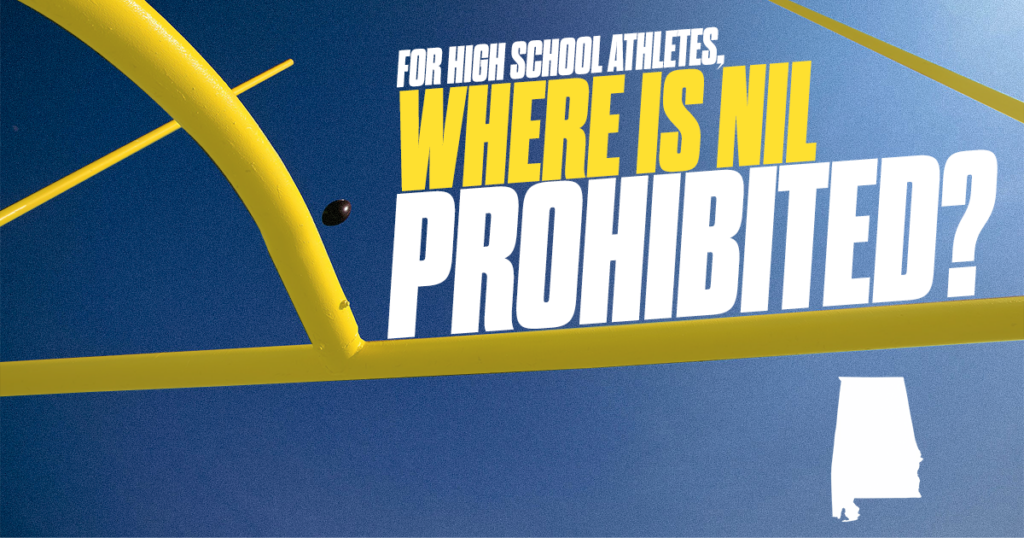
When neighboring Florida became the 36th state association to allow high school athletes to participate in NIL, it created questions about what’s next with the Alabama High School Athletic Association.
That scrutiny developed because of the news from the Florida High School Athletic Association but also because the AHSAA named Oxford High School principal Heath Harmon as its new Executive Director.
Harmon – who has more than a decade of experience as a football coach with stops at White Plains, Andalusia, Munford and Cordova – replaces Alvin Briggs, who retires in early July. Briggs leaned heavily on the AHSAA’s amateur policy that says high school student-athletes “can’t use (their) athletic abilities to gain anything financially” during his three-year tenure.
But with neighboring associations in Georgia, Tennessee and Florida allowing high school student-athletes to participate in NIL deals without losing their eligibility, Harmon can’t avoid the name, image and likeness debate. Heck, even the South Carolina High School League appears to be on the verge of allowing NIL for its athletes.
During his introductory news conference, Harmon was peppered with questions about NIL. He wouldn’t indicate whether or not he supports deals for high school athletes, but Harmon said he was acutely aware many people in Alabama are cautious to accept major change when it comes to prep sports.
“What I need to do during this transition period is see where we are actually in that work and making sure that we’re moving quickly enough to where we have a solid plan, but not too quickly to be reckless with that, so definitely that’s one of those big items that we’ll be looking at,” Harmon said. “I want to feel things out. We don’t want to do anything to hurt our core purpose.”
“I consider myself a transformative leader. That doesn’t necessarily mean change. It means building capacity with everybody. It’s very important that we determine what our core purpose is.”
Still, there are vocal leaders who are strongly encouraging Harmon to take a deliberate approach to NIL reform.
“My thought process is it’s going to come but I hope Alabama is 50th,” said UMS-Wright Preparatory School’s Terry Curtis, who holds the record for the most football coaching wins the state and is the incoming president of the AHSAA’s Central Board.
“It’s a good thing maybe that we haven’t gotten it yet. It’s so new, we can see what works and what doesn’t work in other states. It will help us in what we do to watch other states and talk to them. Most of the plans are pretty much modeled the same way. Unlike in college, we’ve got to have something controllable.”
Hawaii
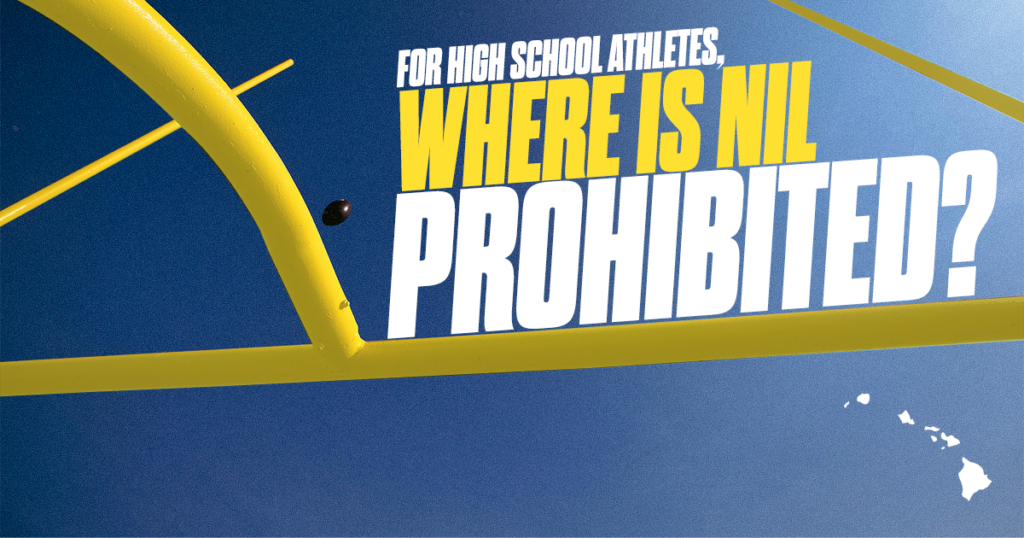
The Hawaii High School Athletic Association has confirmed multiple times that current amateur rules don’t allow high student-athletes to monetize their NIL.
While every other state in the West has either already approved NIL or is considering reform, Hawaii doesn’t appear to be in a rush to alter its approach.
On3 reached out to the state association for an update again in May, but a response was never received.
Indiana
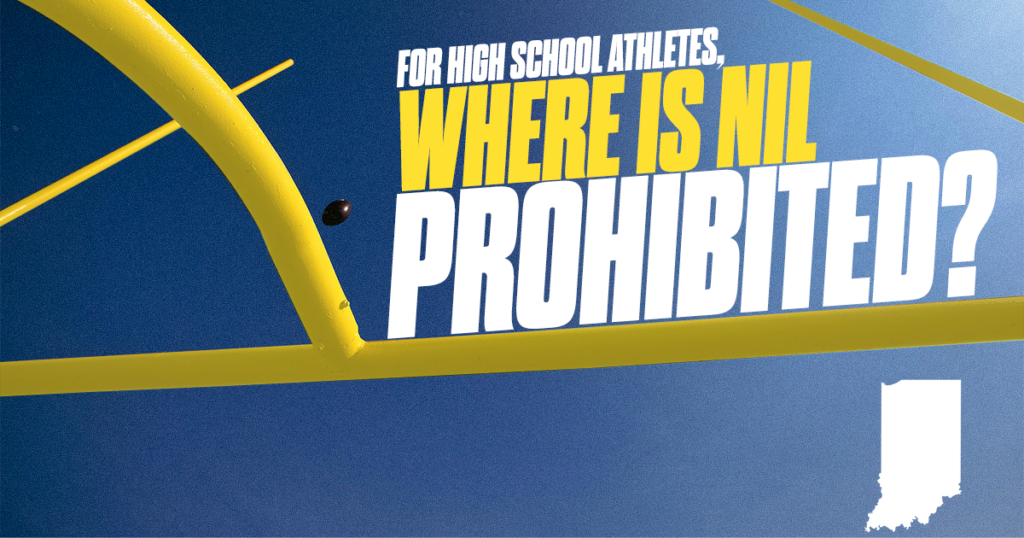
Indiana High School Athletic Association bylaws don’t allow NIL for high school student-athletes. But IHSAA director Paul Neidig told the IndyStar in 2022 that the association is “watching” how other state associations are tackling NIL reform.
IHSAA sports information director Jason Wille confirmed to On3 in May that the association’s executive committee has not had any further discussions on NIL and “our rules have not changed.”
“There’s nothing new to report on that front here,” Willie said. “I believe NIL will be a discussion topic this summer among the respective state leaders at the Summer Meeting of the National Federation of State High School Associations (NFHS).”
Neidig indicated if reforms are made it would be a holistic approach and changes to the amateur rules would be focused on what’s doing best for “all of the kids on the team.”
Michigan
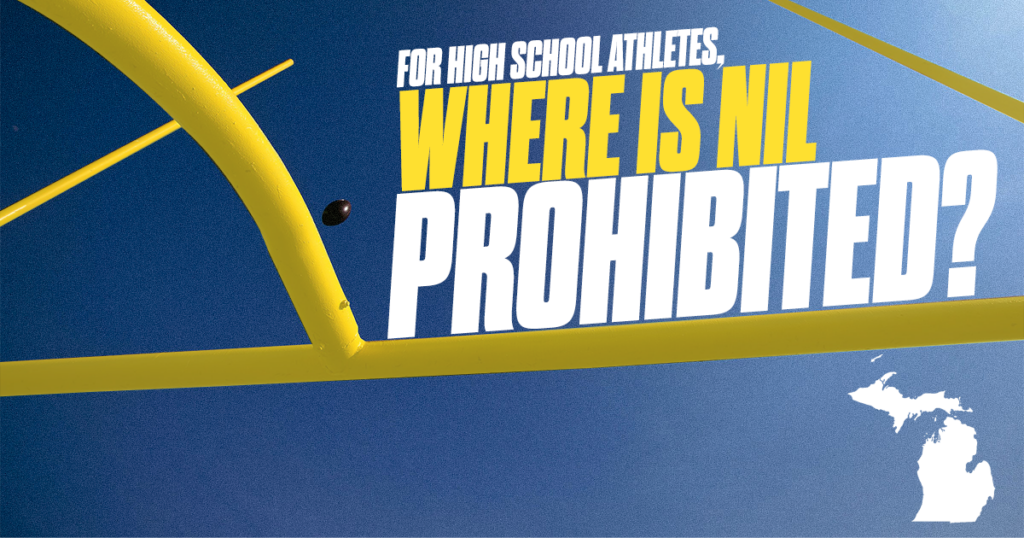
Currently, the Michigan High School Athletic Association does not allow athletes to participate in NIL. However, the Michigan House passed a bill in October that would prohibit schools and athletic associations from blocking students from participating in NIL activities.
The bill, introduced by Rep. Jimmie Wilson, easily passed in the House largely because lawmakers worked with the Michigan High School Athletic Association to develop legislation that would support students and make high school administrators happy.
The legislation moved to the Michigan Senate, but multiple sources told On3 there is no timetable for a vote in that chamber and as of May the bill remained in committee.
“Representative Wilson was very receptive to our ideas and what we felt most strongly about, in terms of what would be workable in the framework of high school athletics and what would not be,” Geoff Kimmerly, the communications director for the MHSAA, told Fox 17 in Grand Rapids.
According to the bill, it would bar boosters or alumni groups from pooling money to form a collective to provide entire teams with NIL deals or to draw students to a certain high school. The bill also requires parental consent and the disclosure and recording of all deals with the MHSAA to track the implementation of the law better.
Plus, the legislation prohibits students from entering NIL deals requiring them to wear or promote a specific sponsor or item during official team activities. It also would bar certain contracts, such as ones with alcohol or adult entertainment companies. High schools could also “identify or assist” with potential NIL deals under the bill, but the school or school representative could not serve as an agent or receive compensation related to the deal.
Many of those guidelines mirror policies in place with other high school associations across the country. But nonetheless, it’s interesting that lawmakers collaborated with the local high school association to formulate the bill.
“If a high school athlete gains recognition for their outstanding talent, they should have the opportunity to get compensated from that popularity,” Wilson told Fox 2 in Detroit. “It doesn’t come easy, and it sure is earned. I am happy I could spearhead my bill, and I am hopeful for its progression in the Senate.”
Leaders with the MHSAA said in committee testimony that the legislation would impact about 25 of the state’s 180,000 high school athletes. But still, leaders saw the need to allow it.
The potential changes could be beneficial for 2025 Five-Star Plus+ quarterback Bryce Underwood of Belleville, Michigan. Underwood is the No. 1 recruit overall in the entire country. Plus, he has a social media presence of more than 92,000 followers. Underwood has 76,000 followers on Instagram alone.
“Much like Julian Lewis, there’s little doubt Bryce could land himself a six-figure deal during his senior year in high school,” an NIL agent who asked not to be named told On3. “When you’re the No. 1 recruit and the top prospect to come out of a state in a long, long time and you have a good social game, brands will want to work with you.”
Montana
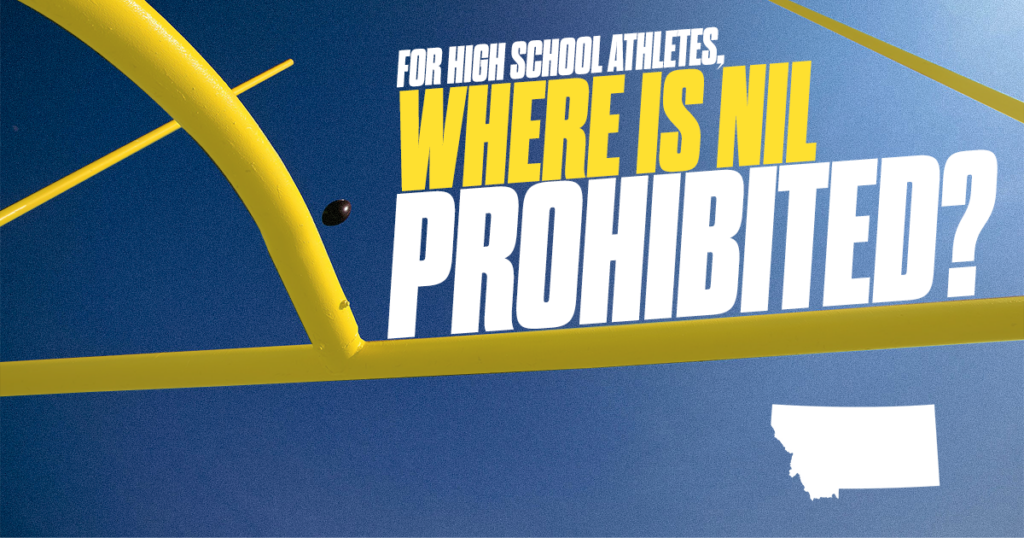
Montana High School Association executive director Brian Michelotti told On3 this past October the organization’s executive board has discussed allowing NIL for its student-athletes “briefly” and “will continue those discussions.” An On3 request for additional clarification in May was not returned.
NIL is not allowed because of the Montana High School Association’s amateur rule, according to the organization’s 2023-2024 handbook. Section 16 of the rule says a student must not “accept remuneration directly or indirectly for playing on athletic teams.” Plus, students are not allowed to accept any award exceeding $100 in value.
North Carolina
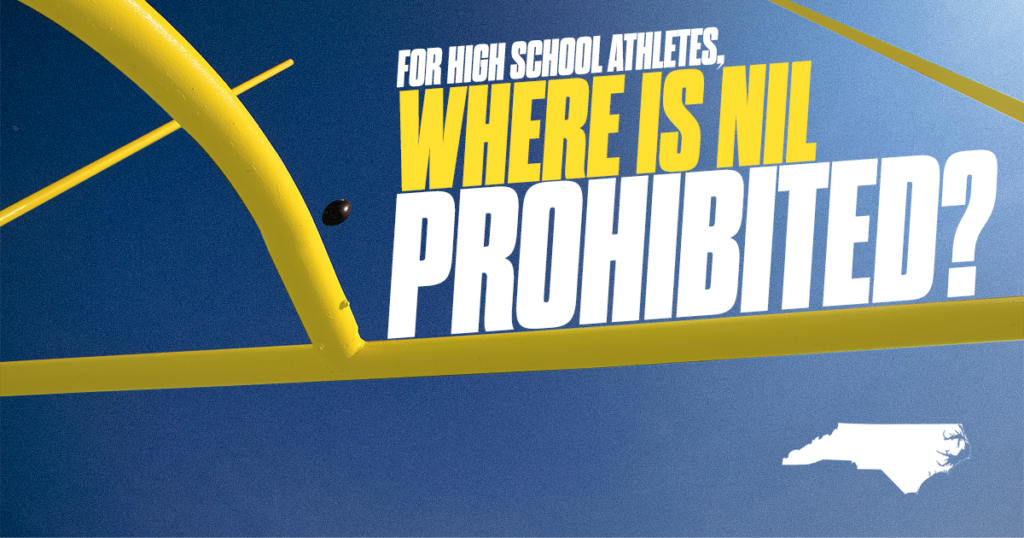
The situation for high school student-athletes in North Carolina is clear as mud.
That’s largely because of an internal battle between the North Carolina High School Athletic Association and state lawmakers.
Last May, the NCHSAA Board of Directors approved a proposal that would’ve brought NIL rights to North Carolina public high school student-athletes starting on July 1, 2023. However, North Carolina politicians shut the measure down barely a day later with legislation that also eventually stripped the state association of much of its power and threatened its very existence.
The latest update on the situation came in February when State Senator Vickie Sawyer told the Charlotte Observer that the North Carolina Board of Education plans to propose NIL rules for public school athletes to the state’s Rules Review Commission.
The minutes from the May 2, 2024, Board of Education meeting give insight into what the new rules would look like. In the updated definition of amateur rules, the minutes say: “No student participating in interscholastic athletics shall enter into any agreement to use the student’s name, image, or likeness in any of the following ways: (1) Public appearances or commercials. (2) Autograph signings. (3) Athletic camps and clinics. (4) Sale of non-fungible tokens (“NFTs”). (5) Product or service endorsements. (6) Promotional activities, including in-person events and social media advertisements.”
Complicating the situation in North Carolina is the fact that the North Carolina Independent Schools Athletic Association announced changes to its handbook for the 2024-2025 school year. As part of the changes, NCISAA student-athletes can profit from their name, image and likeness while still maintaining eligibility to play prep sports. The NCISAA has around 100 member schools, all non-public institutions throughout North Carolina.
“After careful consideration, it was decided to adopt an NIL policy after watching the impact that NIL has had in college athletics,” NCISAA executive director Homar Ramirez said in a news release. “This policy provides the necessary protection for our student-athletes, families and our member schools. We recognize that the sports world is changing and will continue to assess best practices for our schools.”
Under the new rules, student-athletes at North Carolina private schools can “retain athletic eligibility under NCISAA regulations and engage in NIL activities for financial gain, provided the student’s NIL activities and participation in interscholastic athletics remain separate.”
Coaches throughout the state – both public and private schools – are still digesting the news months later. But several coaches, especially in basketball, told On3 that this move gives private schools in the state a “significant advantage” and top-ranked players could transfer so they could take advantage of NIL activities.
Ohio
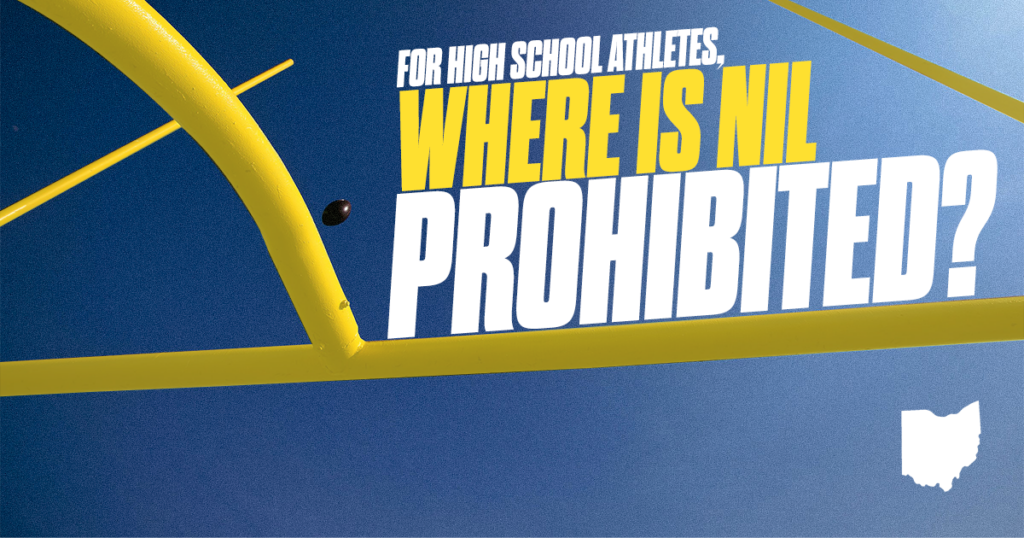
In May 2022, administrators in Ohio overwhelmingly voted against allowing high school student-athletes to be involved in NIL.
Along with other stipulations, the proposal would have allowed Ohio high school student-athletes to be involved in NIL activities as long as their teams, schools and/or the Ohio High School Athletic Association logos are not used.
However, many administrators viewed the proposal as flawed because it was “modeled” around legislation on the college level, according to Ohio High School Athletic Association executive director Doug Ute. There were also concerns about self-reporting mechanics and questions about enforcement.
Top 10
- 1New
Baseball Top 25
New No. 1, massive shakeup
- 2Hot
Way-Too-Early Top 25 2.0
Updated Basketball Rankings
- 3
Kyren Lacy death
Tragic new details
- 4
Jarin Stevenson
Makes transfer commitment
- 5Trending
Tony Vitello
Shot at Nico Iamaleava
Get the On3 Top 10 to your inbox every morning
By clicking "Subscribe to Newsletter", I agree to On3's Privacy Notice, Terms, and use of my personal information described therein.
Since it failed, discussions about NIL reform have largely remained on the sideline in Ohio.
“Our staff and Board of Directors continue to keep an eye on the changing NIL landscape and we have discussed whether or not some version of NIL should be on the referendum ballot,” OHSAA director of communications Tim Stried told the Columbus Dispatch. “That’s really all we can say about it at this point.”
Big Walnut High School athletic director Brian Shelton also told the Dispatch, he doesn’t see NIL being a topic of discussion any time soon.
“Unless they bring it back up, I don’t see it coming back,” Shelton said. “It’s really just for the elite kids. A kid that’s busting it in the wrestling room, he’s probably not getting a deal. It doesn’t seem like a fair system. We have a couple of kids that probably would get some money, but 90-some percent of them will never see anything.”
South Carolina
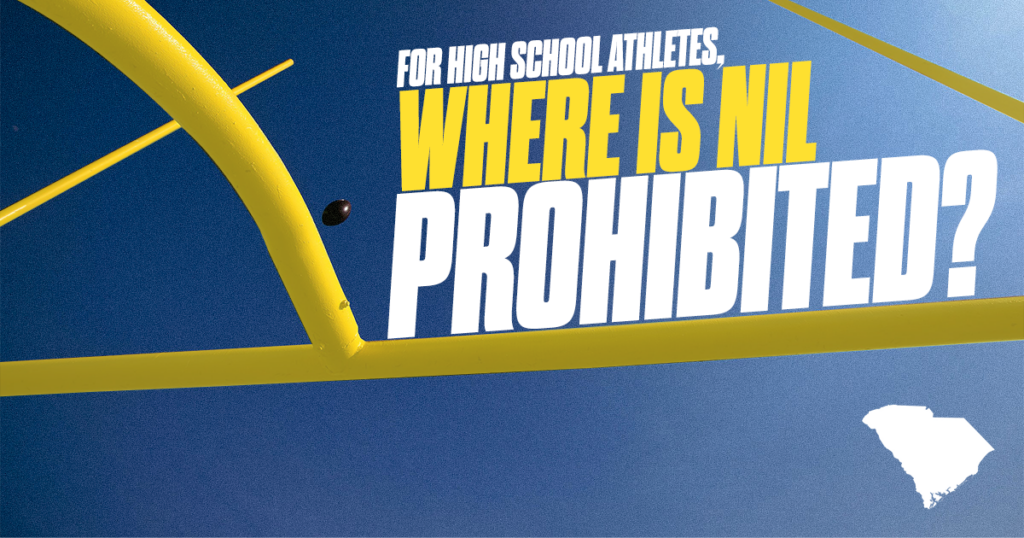
It appears South Carolina could be the next state association that approves NIL for its high school athletes.
South Carolina High School League commissioner Jerome Singleton spent months formulating updated amateur and NIL rules for the association. Singleton said he modeled the South Carolina guidelines to what the Oklahoma Secondary School Activities Association and Tennessee Secondary School Athletic Association have in place.
The guidelines in Oklahoma have become a common baseline for many state associations that have adjusted their NIL policies over the past two years. Singleton highlighted the Tennessee rules because they clearly outlined penalties for violations of the policy.
After a lengthy review process and edits from the Executive Committee, the proposed bylaw changes allowing NIL must now be voted on at the next Legislative Assembly meeting to be permanently added to the bylaws.
Multiple requests by On3 to the SCHL for updates on when the next meeting takes place have not been returned.
As of July, the 2024-2025 Rules & Regulations page on the SCHSL website have not been updated to reflect any changes in the amateur rules.
Texas
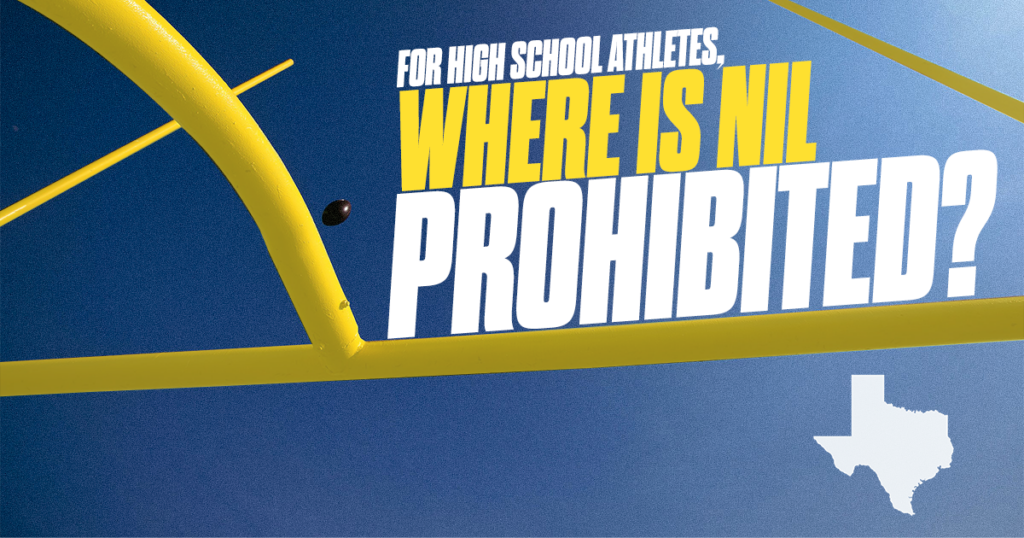
Texas high school athletes can’t participate in NIL because of state legislation. In the current Texas state law regarding NIL, it is outlined that prospective athletes are not allowed to monetize their NIL prior to their enrollment at a university.
However, it appeared the prohibition was on track to be partially scrapped thanks to House Bill 1802. The bill, which was introduced by Rep. Giovanni Capriglione would have allowed athletes in the University Interscholastic League – the governing body of Texas high school athletics – to engage in NIL-related activities if they were 18 years or older and grade requirements were met.
Yet, the bill never made it out of the Public Education Committee and the legislative session ended before it could even be heard. Thanks to the way Texas’ state government works, unless there’s a special session called, it’ll be 2025 before the topic can be addressed again.
That’s perfectly fine with some high school leaders in the Lone Star State, who are preaching patience for NIL reform.
“I think it’s kind of the same process as us as other states across the country that don’t have it,” Joe Martin, the executive director of the Texas High School Coaches Association, told On3 before the start of the 2023 football season. “I think they want to learn from everybody else before they make a decision because that decision’s going to be a high-profile decision.
“It’s going to impact a lot of people and a lot of really, really good athletes. I think we’ve tried to take our time to see what happens with the NCAA NIL [policy]. Will it be around in two years? We think, probably, but will it be around in four years? I don’t know.”
Now that things have been put on pause until 2025 Martin believes stakeholders have the ability to do things the right way.
“In Texas, the good thing is we only meet every other year in our legislature,” Martin said. “The bad thing is we only meet every other year with our legislature. So, if we make a ruling in 2025, we can’t correct it until 2027. It needs to be right.
“I’m sure there’ll be a lot of dialogue between coaches, our association and legislators regarding what we’ve learned from others across the country and how if we’re going to have NIL at the high school [level], how best to implement it.”
West Virginia
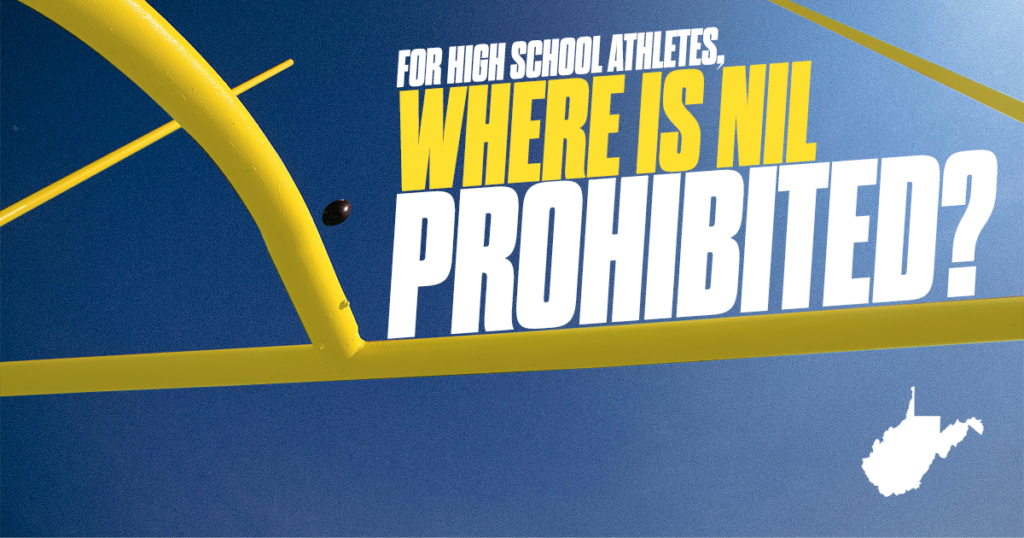
There’s been very little public discussion about whether or not the West Virginia Secondary School Activities Commission plans to budge from its amateur rules.
According to the commission’s 2023-2024 handbook, a high school athlete forfeits amateur status in a sport by competing for money or other monetary compensation (allowable travel, meals and lodging expenses may be accepted); receiving any award or prize of monetary value which has not been approved by the WVSSAC; or capitalizing on athletic fame by receiving money or gifts of monetary value (scholarships to institutions of higher learning are specifically exempted).
On3 reached out multiple times to the state association for an update, but a response was never received.
Wisconsin
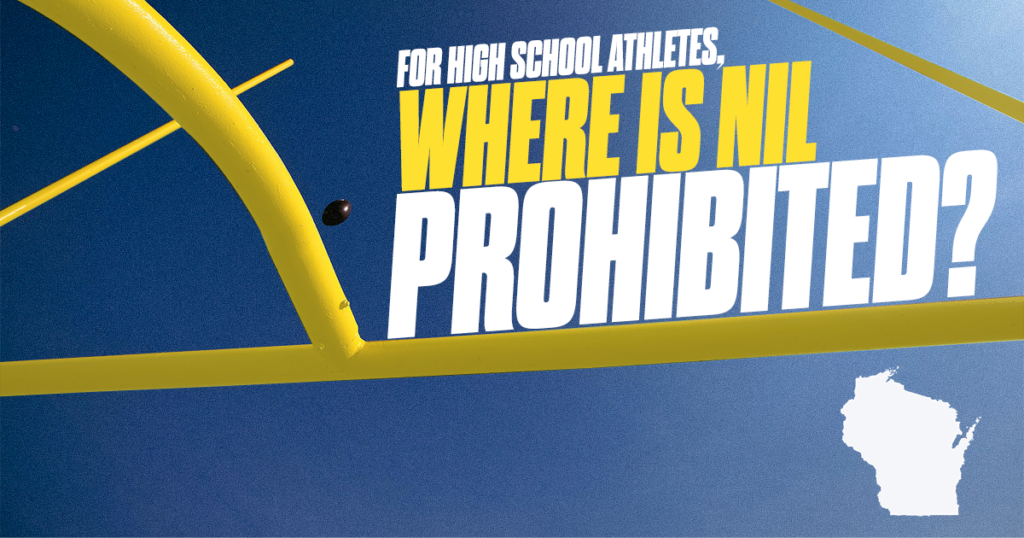
Members of the Wisconsin Interscholastic Athletic Association voted down a proposal in late April that would have allowed Wisconsin high school student-athletes to enter into NIL deals activities not associated with their school team, school, conference or the WIAA.
The proposed amendment was voted on during the organization’s annual meeting and failed on a vote of 219-170. However, executive director Stephanie Hauser indicated the failed vote does not end the discussions on NIL.
“We will continue this conversation with our membership in response to the trend across the nation with other high school associations allowing some opportunities for name, image and likeness,” Hauser said. “The annual meeting vote is evidence of the ownership the membership has in the democratic process.
“The WIAA staff provides information, rationale and possible unintended consequences. But it’s ultimately up to each member school to determine how to cast its vote.”
And much like it was in Ohio, some athletic leaders voted against the change because of specific language in the proposal.
For example, South Milwaukee High School athletic director Ante Udovic told CBS 58 he supports NIL for high school athletes. Yet, he voted no because he was unclear on some of the restrictions; for instance, the language of the proposal states people “associated with a school” could not pay athletes for their NIL.
According to the WIAA’s 2023-2024 High School Athletic Eligibility Bulletin, a “student-athlete may not receive compensation or benefit, directly or indirectly, for the use of name, picture, and/or personal appearance, as an athlete because of ability, potential and/or performance as an athlete.”
Wyoming
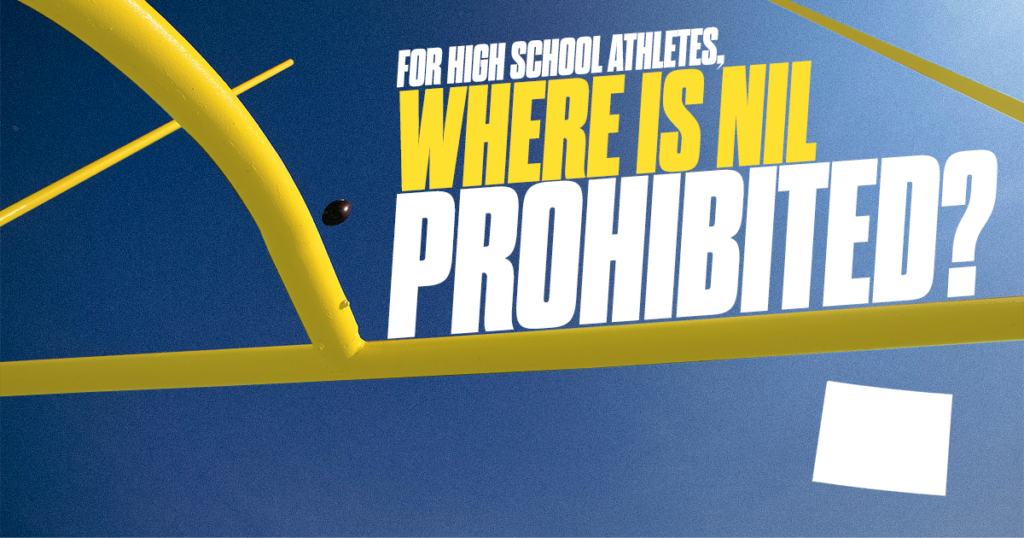
It’s best to put the Wyoming High School Activities Association into the considering change category.
The WHSAA board met multiple times in 2023 and in early 2024 NIL/amateur rule changes were brought up. But more intense discussions are set to take place at executive council meetings in the future. From there, the WHSAA will determine if a policy proposal should be introduced in district meetings.
Current WHSAA guidelines prohibit student-athletes from monetizing NIL or “capitalizing on athletic fame by receiving money, gifts of monetary value or merchandise.”